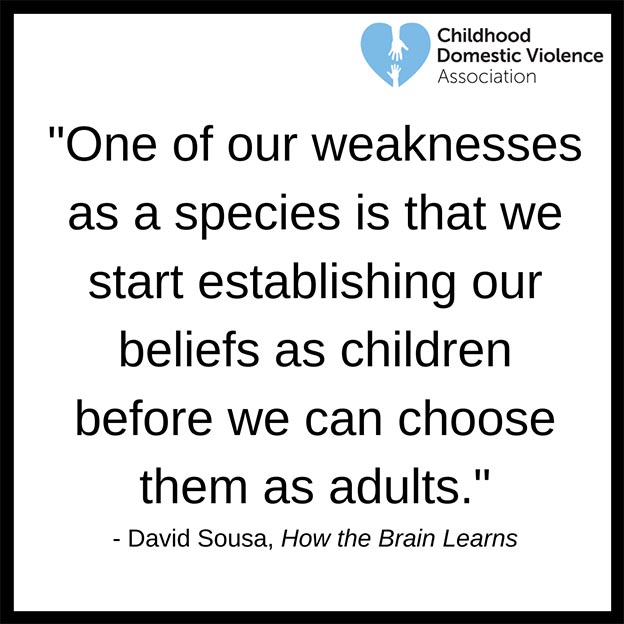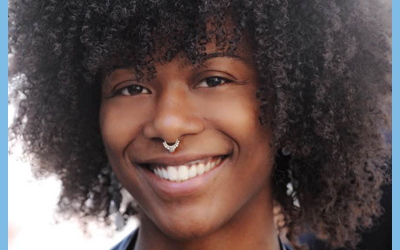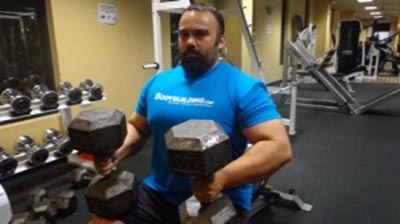
Every day we have opportunities to unlearn lies we may have learned. Many of the lies that we believe about ourselves were seeded in childhood. Especially if you grew up in violent home. A home in which the violence could have been physical or nonphysical.
Those opportunities may not always be obvious, however. They are hard to spot. Here we will explore an example of how one man took notice of these opportunities, controlled the meaning and was able to see the truths behind the lies.
Growing up with domestic violence left him feeling unlovable
To illustrate, let me introduce you to a friend, a body builder and writer for bodybuilding.com. Roger Lockridge grew up living with domestic violence and he felt unworthy of love. It was something he struggled mightily with. A reasonable thing considering that his father held him, his mom and his siblings at gunpoint and threatened to kill them. Roger was only ten.
That gunpoint standoff between Roger’s father and his family seemed to last forever. But after a while, the police arrived and took Roger and his family to a local shelter, which would become their home for the next four months.
Caring adults stepped in and helped him unlearn the lies
It was the first time in his life that Roger felt there was help, that somebody cared. Each day he was at the shelter, Roger was exposed to people who had dedicated their lives to helping families. It made a huge impression on him. “Yes, they are doing a job,” he recalls, “but no one gets paid enough to do this — to commit to being there for people at the lowest point in their lives.”
Roger was fortunate in that the people at the shelter helped him unlearn some of the damaging negative beliefs that he had already had internalized about himself.
At that moment he saw that he was not alone and he felt safe enough to trust.
They had compassion for him, which let him know that he had been hurt. So therefore, he was then able to have compassion for himself and only then was he able to have compassion for others.
He learned that it is never the job of a child to control the actions of an adult. He realized what had happened in his family was not his fault and that it was not his job to stop it. So his guilt began to subside, which set him free. As he unlearned the lies, he began to find evidence to support his new truths, and his transformation began
But just as we begin to unlearn, challenges often surface
Eventually, Roger and his family were able to leave the refuge and move into a small apartment. But, sometimes it’s harder for the parents to unlearn the lies than it is for their children as Roger’s mother went a little too far enjoying her newfound freedom and started staying out late and drinking. She became an alcoholic, often partying at home and attracting the attention of neighbors, who intervened when they felt her lifestyle might be harmful to the children.
But this time when somebody tried to help, there was an unintended consequence: Child Protective Services took Roger and his siblings away from their mother, who went into rehab. And, as it happened, their father was the only relative in the area who would take the kids. Roger’s father had convinced the authorities that he’d gotten clean, found a new job, and had his life back in order. It wasn’t true.
When challenges arise, there is an opportunity to use the new truths that we learned
It was here that Roger’s truths kicked in and he was able to use what he learned to convince a school counselor that he and his siblings needed help. By then, his mother had come out of rehab and found another job, and she and her children were reunited.
This reunion was an important time for Roger as he found himself living his new truths, sharing that example with his family. He started to feel connected, he says, “in a way that I had never felt before.” It was also during this time that he overheard something that would stay with him for the rest of his life.
Convert those negative emotions into passion
Unaware that he was within earshot, one of the police officers working his family’s case told a social worker, “You know, what’s really sad about this is that we just saved these kids, and ten years from now we are going to be arresting them.”
Rather than getting angry at that comment, Roger chose to convert that feeling of rage into passion, and rather than believing what he heard and thinking all was hopeless, he now had a purpose. From that moment on, Roger vowed not only that he would prove the police officer wrong but that he would end up helping people like himself. He was 13.
We see in Roger’s strength and optimism the value of unlearning the lies. Please share in the comments below what vow you would like to make to yourself – what truth will you focus on and live fully for the next 24 hours? Thank you for sharing.



0 Comments